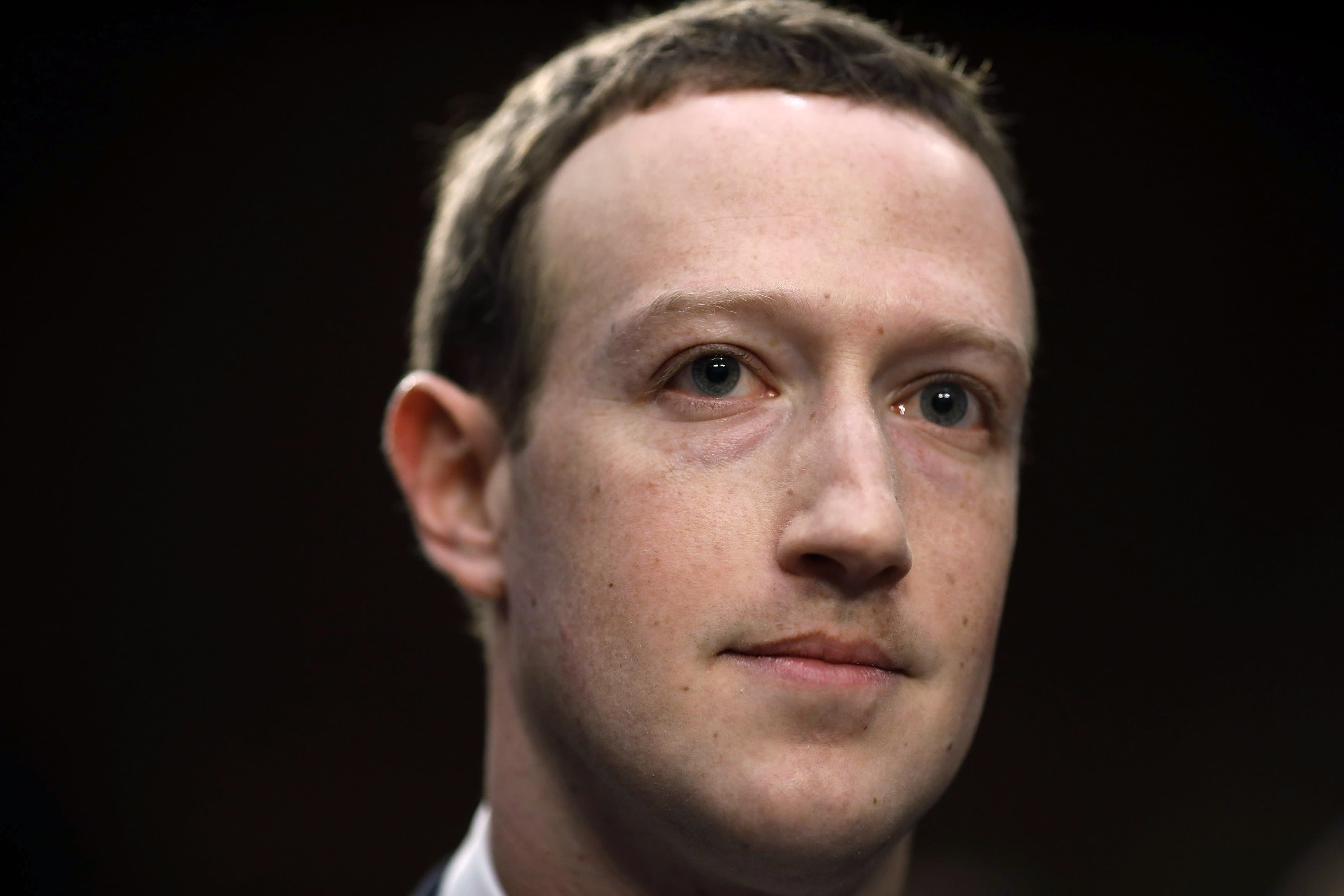
The embattled executive defended Facebook’s Libra cryptocurrency, yet another branch of the social media behemoth that, according to Zuckerberg, “will extend America’s financial leadership as well as our democratic values and oversight around the world.”
Not everyone, however, is convinced.Matt Stoller, author of “Goliath: The 100-Year War Between Monopoly Power and Democracy,” recently joined The Final Round to discuss how Facebook, Amazon, and Google are instigating a new Gilded Age and why these “modern monopolies” need to be kept in check.
Stoller on Zuckerberg: ‘Who put you in charge?’ In a speech at Georgetown University last week, Zuckerberg simultaneously issued a sharp rebuke of his critics and a stalwart defense of free speech.Stoller, however, interpreted Zuckerberg’s arguments as a deflection from more pressing questions.
Facebook Chairman and CEO Mark Zuckerberg addresses the audience on “the challenges of protecting free speech while combating hate speech online, fighting misinformation, and political data privacy and security,” at a forum hosted by Georgetown University’s Institute of Politics and Public Service (GU Politics) and the McCourt School of Public Policy in Washington, U.S., October 17, 2019.REUTERS/Carlos Jasso 更多 “Mark Zuckerberg wants the question to be anything but the real issue at hand, which is advertising money,” explained Stoller.“Facebook is an advertising company, and they take that advertising from newspapers and publishers, and they have a large set of communication networks that they use to manipulate people, and they sell the ability to manipulate people to advertisers.That’s what this is really about.And Mark Zuckerberg is asking the question: ‘Well, what’s the right way to censor? Should we censor to benefit the right, or should we censor to benefit the left? How should I, Mark Zuckerberg, control our comments?’ That’s the question he wants us to be debating about.
That’s the tune he wants us dancing to.We should really be asking the question, why are you involved in this at all? Why do you have all the advertising money? Who put you in charge?”
For Stoller, Facebook — as well as companies like Amazon and Google — operate like the businesses of the laissez faire Roaring Twenties.
“[The 1920s] was a corporatist decade when people didn’t believe in democracy, and were disillusioned,” says Stoller.“It was a scandal ridden decade with a financial bubble underlying all of it — and massive inequality.And that’s fairly similar to what you’re seeing today.You see concentrated markets, disillusionment with democracy, new technology — at the time, it was chemicals and aluminum and electric utilities, and today, it’s Google and Facebook and Amazon.It’s very similar.The basic dynamic that you saw both in the 1920s and today is a question, which is: Who governs? Is it going to be the sort of private, concentrated monopolies? People on Wall Street? Or is it going to be democratic institutions — state legislatures, national legislatures, public officials? And that’s a tension …
this is a contest of political power.”
‘Make it smaller’ Stoller’s solution to this concentration of power is simple, and reflects the cries of Democratic presidential candidates like Senators Elizabeth Warren and Bernie Sanders.
“If something is too big, make it smaller,” argues Stoller.“Google has eight products with more than a billion people; Facebook has three products with more than a billion people.
Make it smaller.Divide up those products.There are a bunch of other things you can do — I recommended that if you’re an information utility, you shouldn’t be allowed to finance your business with ads.You should just make these institutions not as big, not as powerful.”
And it’s not just big tech companies, says Stoller, who pointed to Disney as an example.
“You see ESPN kowtowing to the Chinese because they are afraid that Disney — in its theme parks in China or in its movie exports to China — will lose power.
That’s too big,” says Stoller.
“The interconnectedness of those subsidiaries of Disney allows the Chinese Communist Party to have power over our freedom and our political discourse.So, Disney should be split up.”.
